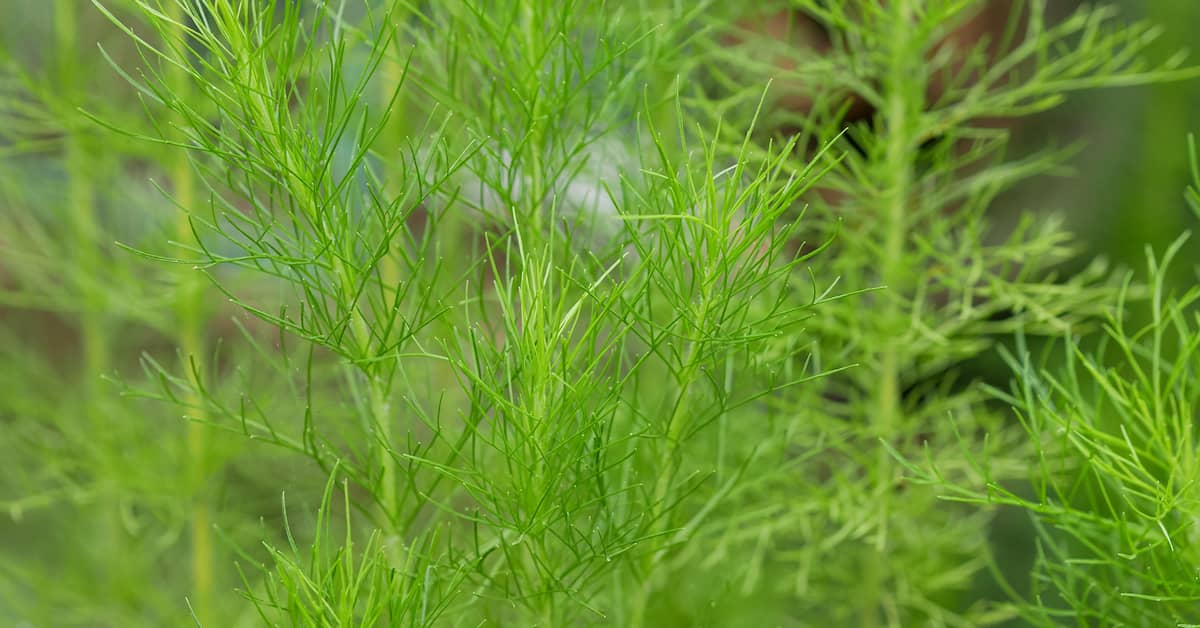
Furthermore, their tests show that older folks taking it could still possibly extend their life expectancy by 20 percent.1 The reason: The extract contains natural chemicals that improve metabolic health. That means this herb could help the body absorb and use food more efficiently and moderate blood sugar while maintaining the well-being of our organs and the way nutrients are distributed in the blood stream. Here’s the exciting new research.
In these investigations, the LSU researchers have been testing extracts from the plant Artemisia scoparia, a plant native to Asia. It’s a particular variety of the plants collectively known as wormwood.
In their experiments, they’ve been trying out the extracts on worms called C. elegans – also known as roundworms.
Even though, to look at them, these worms wouldn’t seem to be creatures appropriate for testing longevity treatments beneficial to humans, the researchers point out that beneath the surface, the worms share metabolic processes with people. So, the physiological commonalities in the worms reflect the functions of the human body.
Plus, since the lifespan of C. elegans runs about three weeks, investigating longevity effects on the worms proceeds much more quickly than having to spend months or years with other animals.
Altering Metabolic Pathways For Longer Lifespan
The researchers found that an extract of Artemisia scoparia prompted changes to the fat regulation of the C. elegans roundworm. As a result, the C. elegans experienced improved stress resistance as the creature aged and a 40 percent longer life. The researchers theorize that this metabolic intervention may enhance some aspects of physiological health in older age.And while lab tests demonstrate that the extract apparently leads the body to produce more body fat not less, the extra fat is healthier and more metabolically active than the fat we usually carry around our waistlines. These findings add to the growing body of evidence that point to how elevated fat levels can support longevity in some circumstances. In addition, if these discoveries pan out, the scientists claim, they could revolutionize how we fight the diseases of aging.
Health Secret From Asia and the Middle East
According to the LSU researchers, this type of wormwood is one of the most frequently used medicinal plants in Asia. (There are numerous types of wormwood. Some can be toxic, but this type is not.)In Saudi Arabia, China, Pakistan, Iran and Afghanistan, this herb is used for liver ailments, gallbladder problems and digestive disorders. It is also used as therapy for infections, ear pain, heart conditions, diabetes, and high blood sugar.
In Traditional Chinese Medicine (TCM), wormwood is also sometimes used as a part of the treatment for hepatitis and to increase the release of bile from the liver.2,3 Different countries use different parts of the plant for various ailments. So, while the Chinese have traditionally used the leaves for medicinal purposes, folks in Pakistan have used the roots and Iranians have used the flowers. As for the LSU researchers, they made their extracts from the leaves.
At least part of the reason the LSU researchers began investigating the anti-aging effects of wormwood was due to its traditional use against diabetes and the fact that previous research had shown it could improve metabolism.
Also Protects Against Liver Damage
Wormwood can also potentially protect against liver damage linked to being very overweight and having high blood sugar – a liver condition called non-alcoholic fatty liver disease.4 Along with that, several studies demonstrate that wormwood can help control harmful inflammation and reduce levels of oxidative stress that otherwise contribute to the chances of developing conditions like heart disease and cancer. At the same time, wormwood helps support pancreas function and reduces the risk of suffering insulin resistance.In addition to all these potential benefits, researchers have also found that this botanical contains a natural chemical called scopoletin that influences the signals released by cells in ways that could fight cancer.5 It’s important to note that, so far, the herb has not been used on humans to slow the aging process. But LSU researcher Adam Bohnert, PhD, is hopeful saying, “Artemisia scoparia could have some exciting potential as a dietary supplement.”
When there’s more news about this herb, I will let you know.
- https://academic.oup.com/biomedgerontology/advance-article-abstract/doi/10.1093/gerona/glac040/6528983?redirectedFrom=fulltext
- https://www.ncbi.nlm.nih.gov/pmc/articles/PMC5709976/
- https://www.ncbi.nlm.nih.gov/pmc/articles/PMC8861327/
- https://pubmed.ncbi.nlm.nih.gov/23702383/
- https://pubmed.ncbi.nlm.nih.gov/33847360/
